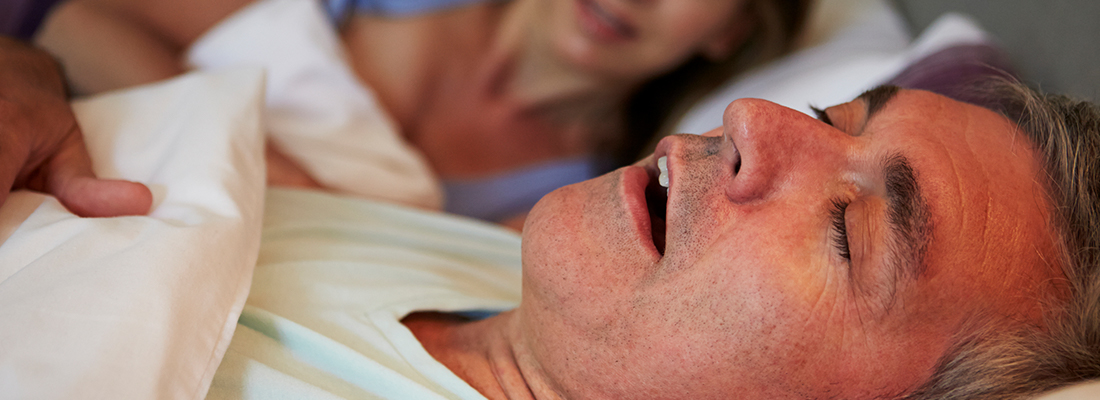Snoring can be bad for your sleep, harmful to your health, and rough on relationships – what causes it?
What is snoring?
Snoring – the sound your breathing can make while you’re asleep – can occur at any age from infant to ancient. The volume of your snore can range from adorable whisper to raging tornado.
The health effects are usually negligible in light to mild snorers. However, severe and chronic snoring can seriously affect your well-being, from lack of proper sleep to daytime drowsiness, to the very real, very dangerous medical condition called Obstructive Sleep Apnea, with its interrupted breathing rhythm, gasping, and associated risks like heart conditions, high blood pressure and stroke.
The social consequences of snoring can stack up as your snore grows louder and more persistent, from mild annoyance to serious and long-lasting damage to relationships. A recent article in Psychology Today says,
“Snoring can put great strain on relationships. A snoring problem often creates not only tiredness but also frustration and resentment between couples. It can interfere with sexual and emotional intimacy, and can push couples to sleep in separate bedrooms.”
What causes snoring?
Different areas of the nose and the airways can contribute to the production of sounds as you breathe. Some examples include swollen, irritated sinuses; deviated septum; or collapsed nasal valve. The main culprit in snoring is the tongue, the tissue of the uvula – the hanging palate you can see in the mirror – and the lining of the throat. When you fall asleep, the muscles in this area relax along with the rest of the body. The next factor is sleeping position. Because you’re lying down, the tongue can slide toward the back of the throat and bump against the uvula and throat. Passing through this area, the breath causes audible vibrations.
Causes of nasal congestion
Here’s a list of potential causes of snore-inducing nasal congestion, as provided by the American Rhinologic Society:
- Allergies
- Viral infection
- Environmental irritants
- Enlarged turbinates (anatomical structures inside the nasal cavity)
- Deviated nasal septum
- Chronic sinusitis
- Nasal polyps
- Benign and cancerous tumors
More snoring risk factors
Based on causes listed the Mayo Clinic website, these are risk factors that may make snoring more likely:
- Being male, because men are more likely than women to snore or have sleep apnea
- Being overweight or obese, because these conditions can accompany excess fat in the throat area, and reduced muscle tone
- Having a narrow airway, due to elongated uvula, or enlarged tonsils or adenoids
- Alcohol consumption, because alcohol relaxes the throat muscles
- Nasal problems, such as a deviated septum, collapsed nasal valve or enlarged nasal turbinates
- Having a family history of snoring or obstructive sleep apnea
What can I do about snoring?
If your snoring is constant, or loud enough to affect your relationship with your sleeping partner, or if you experience disruptive consequences in your sleeping and waking life, you should consider asking your doctor to help assess the severity of your problem. If you exhibit signs of sleep apnea, seek medical attention right away, because the health risks are quite serious.
There are simple, effective remedies for problem snoring, depending on the cause. These can range from changing pillows to alter your sleeping position, to over the counter decongestants for season allergy, to appliances like nasal strips or mouthpieces. Surgical solutions might include procedures to stiffen the uvula, to correct deviated septum, or to reshape the nasal valve. Even sleep apnea can be managed either by weight loss, or use of assistive devices like Continuous Positive Airway Pressure (CPAP), which involves wearing a mask while sleeping that helps keep breath moving through your airways.
If you’re not sure whether snoring is a concern, ask your sleeping partner. The answer may offer the clue you need to learn more, and to seek a long term solution.
Here’s to peaceful , restful sleep, domestic tranquility, and pleasant dreams!

